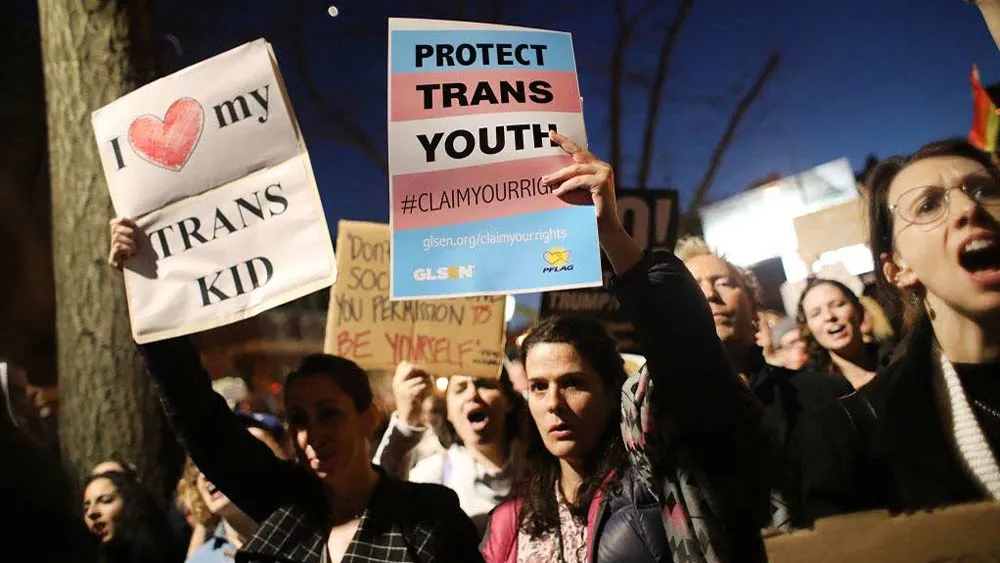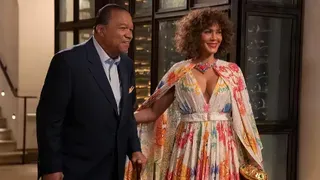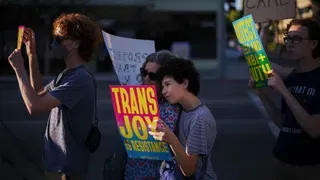August 1, 2015
Marriage Equality In Canada: 10 Years Later
Kilian Melloy READ TIME: 7 MIN.
"All hell is going to break loose," "I think it will...literally cause the destruction of our country," "This could split the country right in two," "A disastrous ending."
What are those statements referring to? A nuclear war? Nope. Terrorist attack? Nah. Asteroid collision? Wrong.
They were just some run of the mill talking points made by right wing fanatics in response to marriage equality.
SFGN decided to reach out to America's northern neighbor to see just how much that country has changed since legalizing same-sex marriage 10 years ago this month.
Has Canada been destroyed yet? Turns out more Canadians favor marriage equality now than ever before. And yes the nation is still standing strong.
The same day the Supreme Court in the U.S. made their historic ruling a Forum poll in Canada found that seven in ten Canadians now support same-sex marriage.
So what exactly does post-equal marriage in a developed North American country look like?
"To Canadians, the American debate sounds very familiar, but it also sounds somewhat historic because that question is, 10 years on, largely a settled question in Canada," said Alex Munter, former national coordinator of Canadians for Equal Marriage (CEM), a public interest group that played a pivotal role in the passage of the Civil Marriage Act.
"It is no longer really a matter of debate in the public discourse," he added.
Of course that wasn't always the case.
When CEM came together in 2003, they found that public opinion broke down into three camps - a third deeply for, a third deeply against, and a third that were swayable.
"Ultimately that third landed on the side of equality and fairness as a core Canadian value," he said. That shift, however, was a long time in the making.
In 1969, Canada decriminalized homosexuality. By contrast, it was only in 2003 that the Supreme Court in the U.S. invalidated sodomy laws nationwide.
The Canadian Charter of Rights and Freedoms, introduced in 1982, would play a big role in court cases to come, as lawyers would argue that section 15 prohibits discrimination on the grounds of "sexual orientation."
In 1996 the federal government added sexual orientation to the Canadian Human Rights Act, and by 2001 all provinces and territories in Canada (except three) had added sexual orientation as a protected class under their human rights codes. Then in 2003 the Ontario Court of Appeal upheld a lower court ruling to legally allow same-sex marriages in the province, making it the first to do so.
Finally on July 20, 2005, Bill C-38 (Civil Marriage Act) passed, legalizing same-sex marriage across Canada. A last ditch effort was made in late 2006 to reopen the marriage equality debate, but that motion was defeated.
The point is it didn't happen overnight. The general public had decades to get accustomed to the idea that homosexuals aren't criminals, that they are being discriminated against and need protections, and that given the importance of equality to the Canadian identity, they should be able to get married.
And get married they did.
The 2011 Canadian census showed that 21,015 same-sex couples were married. Since 2006, the number of married same-sex couples had almost tripled. Traditional families had declined, but this was hardly because of same-sex married couples, as they only made up 0.8 per cent of all couples (married and common-law). It's particularly interesting to note that the census recorded a total of 64,575 same-sex couples, meaning almost a third found it important to get married.
"Why wouldn't we, as people that love each other, why wouldn't we want to get married just like everyone else?" asks Jennifer Alexander, 66. She and wife Lori Boyce, 56, have been married for nearly 12 years and together for 14. They got married in Ontario in 2003, so soon after it became legal that the forms at City Hall still read "bride" and "groom."
"It was that early," Alexander said. "They didn't know what to call us."
The couple met at church and although they both say they never thought equal marriage would become legal in their lifetime, as soon as it did a church wedding was a must. "Once it became legal, it became important to me to be able to make a declaration of love and commitment before not just friends and family, but in a church setting," Boyce said. They got their church wedding.
"It's not a special right that we're being given. We're just given the same right as 95 percent of the population," Boyce said.
All the same, she says they did get some grief from members of the LGBT community about joining a "heteronormative institution." She wants to make it clear: "We're not just coping (sic) out and adopting a heterosexual model. We are redefining it in a way that works for us."
Kevin Downer, 50, who has been married to his husband Toby Bishop, 54, for nine years, agrees. "One of the most subversive ways to reform an institution is actually to participate in it, and to participate in it in a way that actually helps to open it up and make it more meaningful."
Their story is one of a lot of travels and coincidences.
Downer, who is originally from Connecticut, met Bishop, who hails from England, at a Chicago church. Today they've been together 15 years. In 2006, Downer travelled from San Antonio to Toronto to marry Bishop, who at the time was living in Chicago. Then after spending some time in Minneapolis, Downer moved to Toronto in 2013, followed by Bishop a year later. The purpose of that move was so that Downer could begin his work as an executive pastor at the very church they got married in - the Metropolitan Community Church of Toronto.
Why the choice to get married in Canada if they weren't going to stay? A series of incidents led up to their decision. Bishop recalls the hassle they experienced trying to check in together at a Chicago airport, whereas for Downer a big point of contestation was the troubles he had trying to visit his husband in the hospital. "As a matter of principle we wanted to fight to put it right," Bishop said.
During the time they lived in the U.S. as a married couple, Downer says the general reception was one of confusion because it wouldn't quite compute for people that they were actually married. When they moved to Toronto, Downer found that "people don't bat an eyelash."
That may be largely true today, but even as recently as the mid-2000s there was resistance.
Boyce and Alexander recall back then arguments about marriage equality being the legal opening of the doors for polygamy and forcing churches to perform same-sex marriages were common. Sound familiar?
"I think it just scared people," Boyce said.
Today, when they walk around Toronto holding hands, they say people either don't acknowledge them, turn around and look, or smile kindly. One big plus these days is that they're seeing a lot more young people living their lives openly.
"We see more people and we see more younger folks who are just very casual, matter of fact holding hands. And now we're the ones smiling, because it kind of feels like we pioneered the holding hands in public."
But that's in Toronto.
"When we go outside of Toronto we are not nearly as open with our affection." Boyce says she would never publicly hold hands with her wife or think of showing her affection back in her small town - this despite her family knowing about them.
There's clearly still work to do.
"Marriage doesn't change a culture," said Helen Kennedy, executive director of Egale, Canada's national LGBT human rights organization. "Marriage is one part of a much larger discussion around diversity and inclusion and acceptance."
For years now LGBT activists and allies in Canada have had a new battle to focus on - trans rights. The trans community still seeks protection under the Canadian Human Rights Act and the Criminal Code.
So while Kennedy doesn't believe Canada is as inclusive as it could be, she nevertheless still believes it's a rich and diverse society capable of more. And if you ask her, marriage equality only contributed to society in a good way, bettering Canadian culture.
"The sky didn't fall in. We didn't explode or implode because of same-sex marriage," she said.
Neither will America. With time, even some of the most fervent opponents will see that.
Munter noted: "They will get to know LGBT people, they will come to understand that love is love, and that equality and fairness are core values in the United States just as they are in Canada."
Fire and Brimstone
Here are just a few of the dire predictions made by conservatives if same-sex marriage was legalized
"If this Supreme Court rules against marriage, all hell is going to break loose."
- Former House Majority Leader Tom DeLay (R-Texas)
"I think there's an attempt to destroy the institution of marriage and I think it will cause, literally cause the destruction of our country or lead to the destruction of our country over the long run."
- Alabama Supreme Court Chief Justice Roy Moore
"I believe God loves homosexuals as much as he loves everyone, but if we can redefine marriage as between two men or two women or any other way based on social pressures as opposed to between a man and a woman, we will continue to redefine it in any way that we wish, which is a slippery slope with a disastrous ending, as witnessed in the dramatic fall of the Roman Empire."
- GOP presidential candidate Ben Carson
"...we're going to see a general collapse in the next decade or two."
- Focus on the Family founder James Dobson
"The family is the bedrock of our society. Unless we protect it with the institution of marriage, our country will fall."
- GOP presidential candidate Rick Santorum
"Anybody who knows something about the history of the human race knows that there is no civilization which has condoned homosexual marriage widely and openly that has long survived."
- Former Rep. Todd Akin (R-Mo.)
"If this court decides that they're going to change the definition of marriage, that then throws this country into an endless trauma."
- Rep. Steve King (R-Iowa)
"We have an enormous storm coming at us in homosexual marriage, unlike anything we've ever faced. Abortion was not this way -- as horrible as abortion is -- but this is the first social issue that, if we lose on, the Gospel is crushed under foot."
- Jim Garlow, Senior Pastor of Skyline Wesleyan Church in San Diego, California
"Messing around with marriage will affect economic prosperity of a nation because you're violating the commands of God"
- David Barton, Head of WallBuilders and host of conservative radio show "WallBuilders Live"
"This would be more devastating to our freedom, to our religious freedom, to the rights of pastors and their duty to be able to speak and to Christians around the country, then anything that the revolutionaries during the American Revolution even dreamed of facing. This would be the thing that revolutions are made of. This could split the country right in two. This could cause another civil war."
- Chairman, Liberty Counsel and Dean, Liberty University Law School
Kilian Melloy serves as EDGE Media Network's Associate Arts Editor and Staff Contributor. His professional memberships include the National Lesbian & Gay Journalists Association, the Boston Online Film Critics Association, The Gay and Lesbian Entertainment Critics Association, and the Boston Theater Critics Association's Elliot Norton Awards Committee.

 Copyright South Florida Gay News. For more articles, visit
Copyright South Florida Gay News. For more articles, visit 




